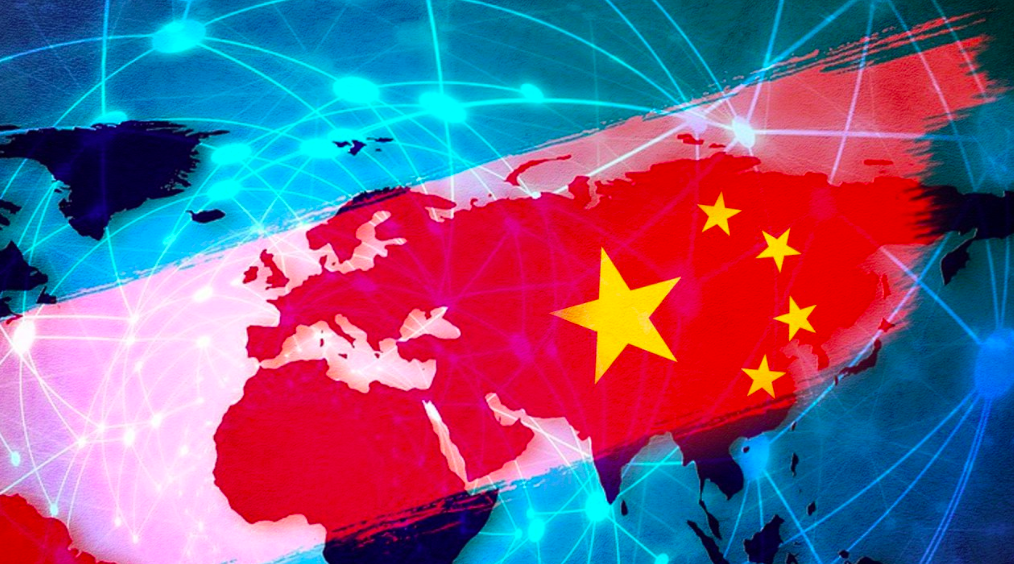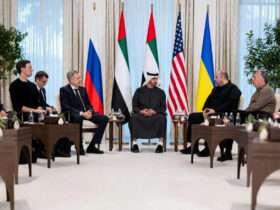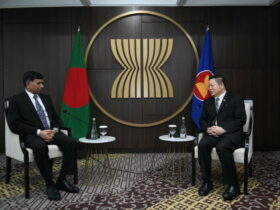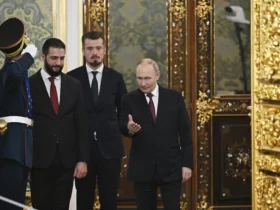Strategic Patience or Silent Intervention?
Strategic Patience or Silent Intervention?
By Mehmet Enes Beşer
With news of China’s alleged transfer of defense technology and weapons to Yemen, Beijing’s Middle East policy came under renewed questioning. While the specific scale and form of such aid remains unclear, the political ramifications of the news are certain. To others, these moves all add up to a real change in China’s role — reluctant economic player to full-blown political and even military player in one of the world’s most unstable regions. Is China emerging as a Middle East geopolitical player? What would be the stakes for regional stability and China’s strategic interests?
The Chinese approach to the Middle East has rested on the pillars of non-interference, economic involvement, and finally balanced diplomacy. In contrast to the other powers, China has not yet entangled itself in regional affairs. Beijing’s foremost interest has been sustained infrastructural development under the umbrella of the Belt and Road Initiative (BRI) with a focus on ports, energy corridors, and industrial estates. China’s BRI ambitions have the geopolitically rich and hydrocarbon-rich Middle East at their center. All recent Chinese initiatives in the region, from its mediation of Saudi-Arabian and Iranian relations to its peace proposals between Israelis and Palestinians, seem to align with Beijing’s desire to be regarded as an instigator and consolidator of peace.

The story is very different once the military aid enters the mix. Should Chinese military assistance to the Houthi rebellion in Yemen be proved, this will be a major deviation from China’s historical policy of neutrality. The alleged support raises a string of questions: Is China attempting to reverse U.S. and Western hegemony by providing assistance to anti-West forces? Or is China simply going to purchase eventual access to such strategic sea routes like the Bab el-Mandeb Strait, which carries such strong importance for Chinese and world oil reserves?
Regional geopolitics remain to continue cultivating the problem. The war-torn and fragmented nature of Yemen as a region persists, with the Houthis growing more Iran-oriented than the internationally recognized government of the region with Saudi Arabian support. China reacted by strengthening its alliance with Iran and Saudi Arabia in recent years as a move to remain in the middle between these rival players. Relations with the Houthis thus endanger China’s delicate balance and risk provoking an adverse reaction by Riyadh and its Gulf allies, China’s valuable economic partners.

In real terms, if China is backing Yemen minimally, it is highly likely to do so for pragmatic, and not ideological, purposes. One of the main reasons is the need for Beijing to have secure maritime routes used in the transportation of oil and products to and from China. Instability in the Red Sea encouraged by Yemen conflict threatens such key routes. Second, military cooperation — when presented in terms of anti-piracy efforts or defensive deployment — is a means of projecting power in the region while projecting friendliness. Third, they might be part of a transition towards contingency planning for power projection globally as a means of responding to the United States’ recalibration of regional strategy.
It is of the highest significance to view China’s involvement in these Middle Eastern conflicts in an international context. In Syria, for example, China has been supporting the Assad government and pushing back at Western efforts at regime change or foreign interference. China has not been engaging in major military actions, however, but rather concentrating on giving reconstruction aid and diplomatic support. On Palestine, China has been more vocal in its denunciation of Israeli aggressive actions since the recent conflict in Gaza. Chinese leaders restated support for a two-state solution and denounced the massacre of civilians. Both these positions are driven by moral and pragmatic considerations: turmoil in the Levant threatens oil supply lines and has disastrous consequences for the Chinese economic interests.

The growing hostility by Israel, and indeed the latter’s recent wars in Gaza and conflicts with Hezbollah, pose a strategic dilemma for China. On the one hand, there are close technological and economic links between Israelis and Chinese. But on the other hand, the rising violence endangers the energy infrastructure of the region and the vital shipping lanes and pipelines. China has reacted sensibly but increasing criticism. In the United Nations and beyond, Beijing has endorsed cease-fire efforts and calls upon the international community to be held accountable by humanitarian law. It falls short of taking active steps against Israelis or pressuring them with sanctions or withholding assistance.
Diplomatic restraint in this instance must be distinguished from mere indifference. Indeed, this is an intentional policy that is also reflective of China’s overall preference for a multipolar world order, regional equilibrium, and diplomatic resolution of issues. Bloc alliance in the style of Cold War bloc politics is antithetical to Beijing’s strategic interests. China wants to continue asserting its image as an alternative to the hyper-militarized and bipolarized models of Western diplomacy. This is the justification behind China’s appeal for political settlement in Syria, Yemen, and Palestine, even with the sheer magnitude of complexity there.
The key issue, then, is whether small-scale military intervention, as represented by purported backing for Yemen, besmirches this reputation for promoting peace. It all depends on the scope and rationale of such intervention. If China is able to justify this aid as a way of preserving national sovereignty or as a pre-emptive attack on foreign invasion — arguments commonly made — it is most likely to persist in its activity as peace broker. As greater transparency and partiality of the aid erode Beijing’s credibility for impartiality, however, the dangers of negative blowback rise in proportion. This would bring it into involvement in sordid domestic politics that China may not be able to manage or even understand.
Conclusion
China’s growing involvement in the Middle East does not mean a change in its traditional policy nor an adjustment to international dynamics but just an adjustment to the new international order.
Whereas cases of military aid to Yemen can be said to raise some eyebrows, these must be understood in the context of international relations that aim at a larger foreign policy directed towards the ultimate objective of the pursuit of peace. China’s main aim in the region is essentially to find stabilization — securing stable energy resources supply, securing the Belt and Road Initiative infrastructure, and enhancing its worldwide reputation as a reliable player. With hostilities growing in the Middle East and the Trump government drawing back or acting in these and other regional wars opportunistically, the role for a neutral mediator is unclear. The more China seeks to expand its military presence on the continent, the more it must develop a sensitive understanding of local sensitivities and regional geopolitics. The more dominant China becomes comparatively in Middle East conflict de-escalation and peace negotiation brokering, the greater the space for it to construct a future regional order aligned with its economic and strategic interests.
The lesson from China is clear: its influence in the Middle East will not stem from arms sales or rhetorical alignment with rebel groups, but from its ability to foster economic stability. If China can remain a consistent source of such stability in a region long marked by volatility, its role as a constructive force in Middle Eastern politics will be secured—not through military power, but through long-term strategic vision.
















Leave a Reply